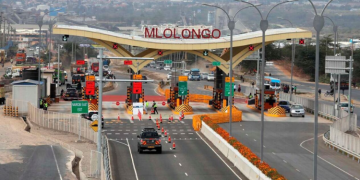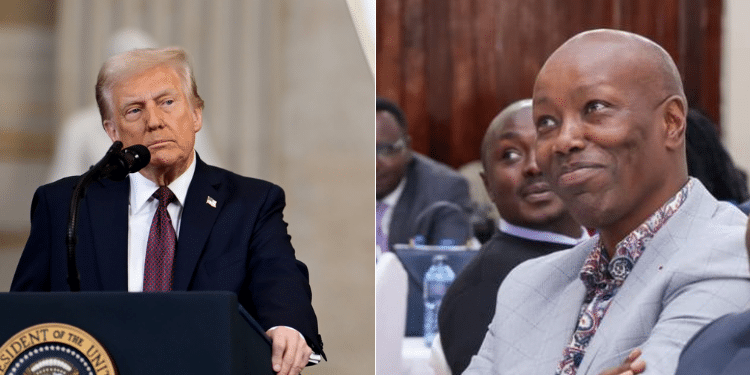The Ministry of Trade, Investment, and Industry has responded to the 10% tariffs imposed on Kenyan exports by U.S. President Donald Trump.
In a statement released on Thursday, April 3, Trade Cabinet Secretary Lee Kinyanjui said the tariffs present a unique opportunity for Kenya to expand its market reach.
CS Kinyanjui noted that while the new tariffs pose certain challenges, they also create an opening for the country to grow its textile exports globally—particularly to the U.S., where demand remains high.
“With other textile-exporting countries facing much higher tariffs, Kenya could position itself as an alternative sourcing hub for U.S buyers,” read part of the statement.
“This presents an opportunity for investment in local textile production and value addition that could attract businesses seeking to avoid higher costs from traditional suppliers.”
Also Read: Blow to Kenya as Trump Cancels Contract Worth Ksh438 Million
CS Kinyanjui explains the benefits of Trump’s 10% tariffs on exports from Kenya
The CS further emphasized that the 10% export tariffs imposed on Kenya are significantly lower than those faced by the country’s key textile-exporting competitors, including Vietnam (46%), Sri Lanka (44%), Bangladesh (37%), China (34%), Pakistan (29%), and India (26%).
At the same time, Kinyanjui underscored the need for increased investment in the textile industry to attract businesses seeking alternatives to countries with higher tariffs.
He noted, however, that the main challenge posed by the U.S. reciprocal tariff is the increased cost of doing business for Kenyan exporters, as it raises the expenses involved in accessing the U.S. supply chain.
According to the CS, necessary adjustments will include expanding production capacity to meet new demand—something that will require investment in infrastructure, technology, and skills development.
“There is a great opportunity to diversify exports beyond our current exports. Kenya can explore opportunities to process and manufacture goods that are now more expensive from countries with higher tariffs. Industries such as apparel, leather, and agro-processing could benefit from increased demand,” the statement adds.
Also Read: Trump Moves to Fire Remaining USAID Staff & Shut Down the Agency
U.S. Tariff policy
Trump’s tariff policy, signed at the White House on Wednesday, April 2, establishes a 10% baseline tariff on all imports, with steeper rates applied to specific countries.
The European Union faces a 20% tariff, while China is subject to a total of 54%, which includes a new 34% increase on top of the existing 20%. Vietnam faces a 46% tariff, and Taiwan is subject to a 32% tariff.
The new tariffs are expected to impact Kenyan exports, particularly in key sectors such as textiles, tea, and coffee, which had previously been exempt under the African Growth and Opportunity Act (AGOA).
Foreign Affairs Principal Secretary Korir Sing’oei, speaking earlier on Thursday, noted that Kenya currently benefits from relatively low tariffs under AGOA. He added that the government will push for a complete waiver of the new tariffs.
PS Sing’oei also emphasized that African exporters must fully leverage the AGOA framework before any potential renegotiation or discontinuation of the agreement.
“Additionally, as AGOA is a Congressional framework for market access to the US by African exporters, it is our considered view that until the law lapses end of September 2025,” he said.
“Or unless repealed earlier by Congress, the new tariffs imposed by President Trump will in any event still not be immediately applicable.”
The new directive is expected to lead to reduced exports, job losses, and lower revenues for businesses relying on the American market.
Follow our WhatsApp Channel and X Account for real-time news updates










































































